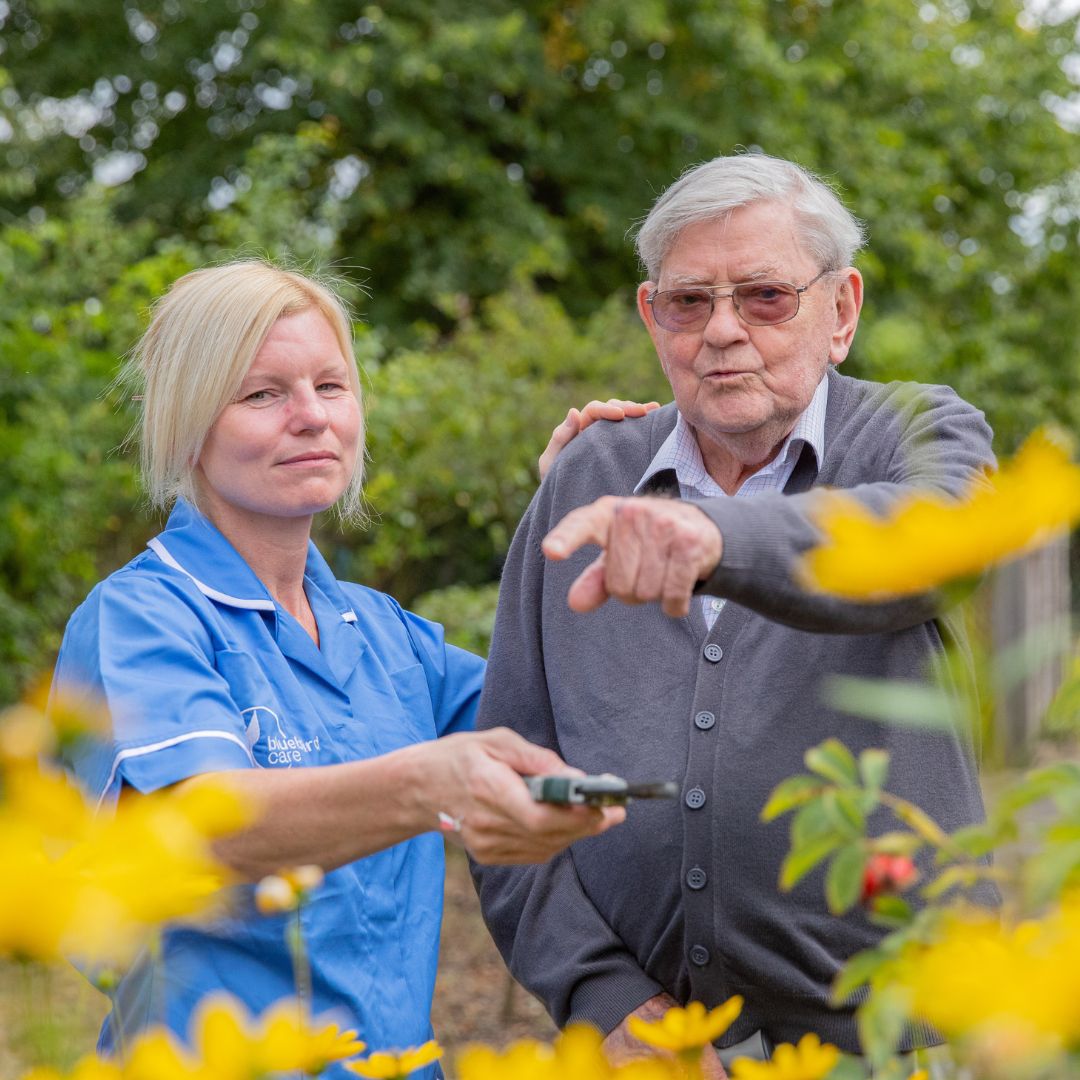Supporting someone living with dementia
Supporting a loved one with dementia can be both rewarding and challenging. As their cognitive abilities change, it's essential to adapt your approach to provide the best possible care and support.
Here are some practical tips for families and caregivers on how to support someone living with dementia:

1. Educate yourself about dementia:
Understanding the condition is the first step in providing effective support. Learn about the symptoms, progression, and common challenges associated with dementia. There are many resources available, including books, websites, and support groups, that can provide valuable information and guidance.
2. Maintain routine and structure:
People with dementia often feel more comfortable and secure when following a familiar routine. Establishing a daily schedule for meals, activities, and rest can help reduce confusion and anxiety. Keep important items in consistent places and try to minimise changes in the environment whenever possible.
3. Foster independence:
While it's essential to provide support and assistance, encourage your loved one to remain as independent as possible. Offer choices and involve them in decision-making whenever feasible. Simple tasks such as dressing, grooming, and meal preparation can help maintain a sense of autonomy and dignity.
4. Communicate effectively:
Communication can become challenging as dementia progresses, but there are strategies to facilitate better understanding and connection. Use simple, clear language and speak slowly and calmly. Maintain eye contact and offer reassurance and validation, even if you don't fully understand what they're saying.
5. Be patient and flexible:
Patience is crucial when supporting someone with dementia. Allow extra time for tasks, and be prepared to repeat instructions or explanations as needed. Stay calm and flexible, adapting to changes in mood or behaviour with empathy and understanding.
6. Provide emotional support:
Living with dementia can be emotionally distressing for both the individual and their caregivers. Offer emotional support and reassurance, and validate their feelings, even if they seem irrational or illogical. Be a compassionate listener and provide opportunities for meaningful social interaction and engagement.
7. Ensure safety and security:
Safety is paramount when caring for someone with dementia, as they may be at risk of wandering, accidents, or forgetting to attend to their basic needs. Take steps to ensure their environment is safe and secure, such as installing handrails, locks, and alarms, and removing potential hazards.
8. Seek support and respite:
Caring for someone with dementia can be physically and emotionally demanding, so it's essential to prioritise self-care and seek support when needed. Reach out to family members, friends, or support groups for assistance and respite care. Don't hesitate to ask for help or seek professional guidance if you're feeling overwhelmed.
9. Maintain social connections:
Encourage socialisation and engagement with friends, family, and community activities. Social interaction can help reduce feelings of isolation and depression and promote cognitive stimulation and emotional wellbeing.
10. Plan for the future:
As dementia progresses, it's essential to anticipate and plan for future care needs. Discuss options such as in-home care, assisted living, or residential care facilities with your loved one and other family members. Having a plan in place can alleviate stress and ensure that your loved one receives the support they need as their condition evolves.
How to find the right care for you or your relative
1. Find your local office
Bluebird Care delivers care from locally based offices, find yours to start your care journey today.
2. Get in touch with us
Fill in our call back form or give us a call to find out how we can help you.
3. Assessment
We’ll come out to you to find out what you or your loved one needs to help stay independent at home.
4. Care team chosen & care starts
You'll be cared for by our specially trained team to support you to remain at home for as long as possible.

